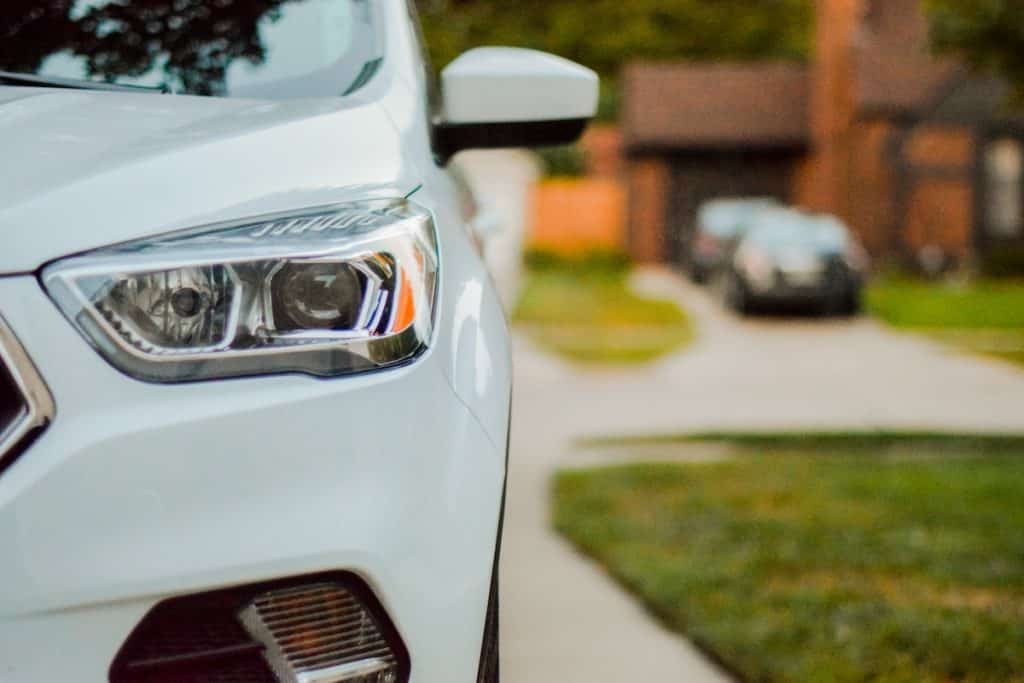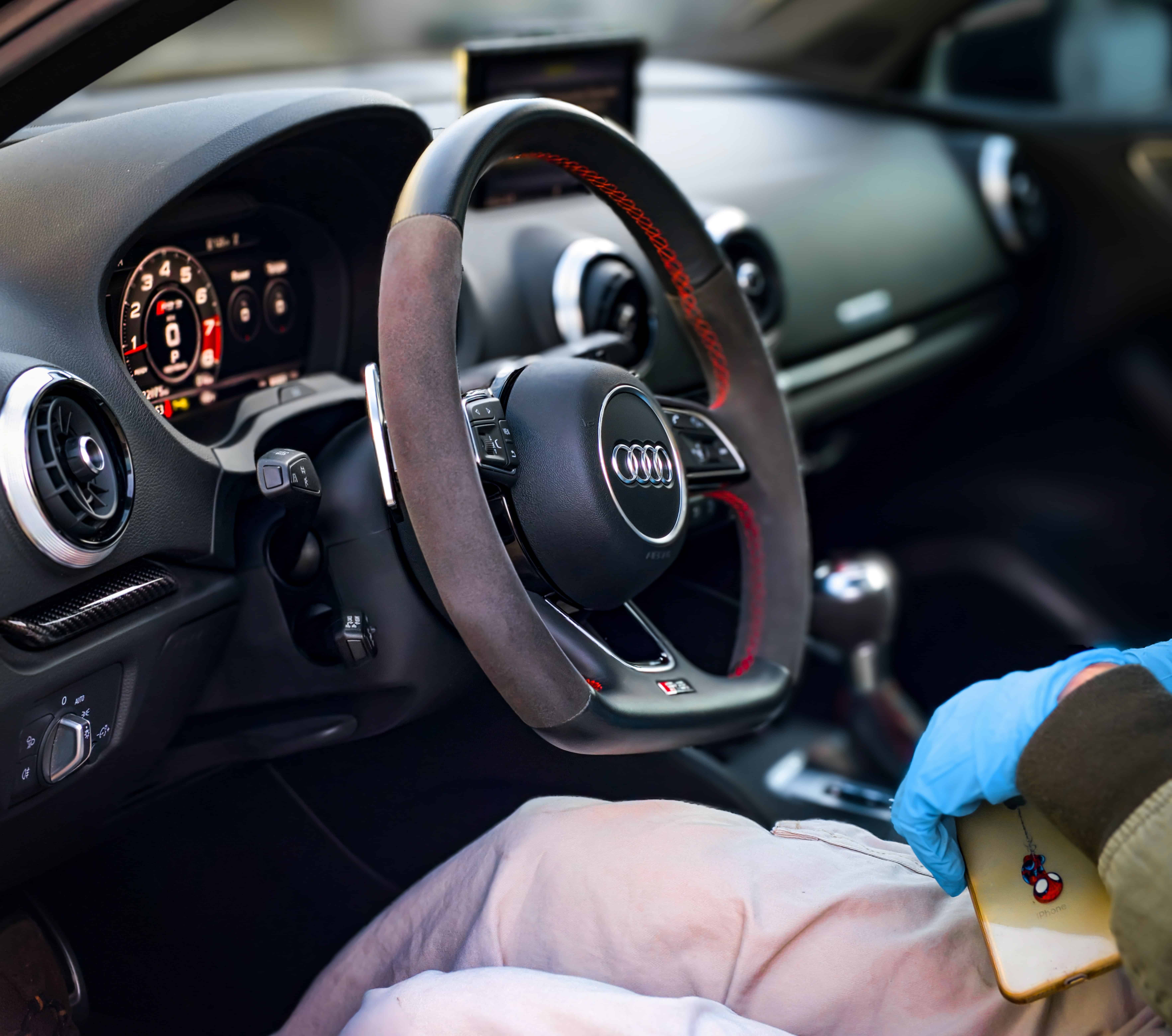The cost of your car is one of the bigger expenses in an individual's personal budget, so you should look for ways to spend less.
As with all aspects of financial management, the earlier that you adopt cheaper habits and strategies – saving money on things like car insurance or gas – the more savings over time.
Without having to refinance your auto loan, potential savings will vary widely based on your driving habits, regional fuel prices, and your choice of vehicle.
Save Money on New Car Purchases

New car purchases are some of the largest single transactions most people make on their own. Before buying a new vehicle, it's important to familiarize yourself with the 4 common mistakes buyers often make when purchasing a car.
Fortunately, you can avoid these pitfalls and save money once you're aware of them:
1. Keep your car longer
Never trade-in your car after just a year, because when you trade frequently, you often lose money on low trade-in values. But if you buy quality cars and keep them for more than five years, this process can be profitable. You can easily save at least $300 by doing this.
Potential Money Savings: $300 to $900.
2. Go small
When buying a new car, small models are often cheaper and have better gas mileage than their larger counterparts. They also cause less damage in accidents so they're easier to repair which means insurance costs less.
Potential Money Savings: $400 to $600/yr.
3. Check fuel efficiency
When choosing between various car options, consider the effect that these choices will have on fuel economy. For example, while using an automatic transmission means less wear and tear for your engine, it also results in a 5-10% lower mileage compared to manual transmissions.
Potential Money Savings: $400/yr or more.
4. Don't get talked into the extras
Be cautious of purchasing service contracts from dealerships when you buy a new car. These plans are expensive and offer limited protection.
Potential Money Savings: $500 to $1,000.
5. Avoid dirty car dealer tricks
From emotional manipulation to how to keep your guard in the finance office. There are a lot of car dealer tricks to avoid when you are buying from a dealership. Be sure to be aware of them, and avoid them.
Potential Money Savings: $500 to $5,000.
Related: Auto Financing for Smart People
Save Money on Car Maintenance

After the initial purchase, it becomes necessary to keep an eye on monthly payments, auto insurance costs, and gas money. If you buy a good quality vehicle that lasts for multiple years – one of our best pieces of advice – then additionally there will be maintenance expenses to take into account. But in here too there are many ways to save money:
6. Get regular tune-ups
A poorly-tuned car can end up wasting gas, which is why it's important to maintain your vehicles regularly.
Potential Money Savings: $150 to $250/yr.
7. Stay on top of maintenance
Change your oil and filter every 3,000 miles for the best possible chance of limiting wear on your engine.
Potential Money Savings: $500 to $3,000.
8. Change the filters
It is important for car owners to check the air filter monthly. A dirty air filter shortens your engine's life and reduces gas mileage by up to 10%. You can clean the filter by removing it and blowing it with an air hose, or you can replace it.
9. Get the right tires
A tire’s air pressure and balance are important for fuel-efficiency. Properly inflated tires will save you money and reduce the wear and tear on your vehicle.
Potential Money Savings: $130/yr or more.
10. Use the right gas
If your car doesn't knock or ping, only use a higher octane gas if your owner's manual recommends it. Most cars won't see any benefit from premium gasoline unless you have a high-performance engine and your owner's manual calls for using it. In 2020, regular gas is about 30% cheaper on average than premium.
Potential Money Savings: $200 to $400/yr.
11. Keep your tires inflated properly
You can lose up to 0.2% in gasoline mileage for every pound of under-inflation.
Potential Money Savings: $140-400/yr.
Save Money on Gas and Driving

While you can't negotiate better gas prices like a car at the lot, there are many ways to save on gas expenses.
12. Use cash back apps for gas
Cash back apps for gas are one of the best ways to save money when you are purchasing fuel. These gas apps help you out in two ways: by providing a coupon for a specific amount of cash back and also by tracking your spending over time, helping you figure out whether or not you are getting the lowest price on gas for your area.
Potential Money Savings: $50-$200/yr or more.
13. Use public transportation
If you live near a public transportation system, using it instead of driving can save you money on gas and car maintenance. Public transportation can be significantly cheaper than buying or maintaining a vehicle, especially if commuting to work every day is part of your daily routine.
Potential Money Savings: $150-$500/yr or more.
14. Get maximum value for your insurance
It is important not only to get the best rate on your auto insurance but to also ensure that you are not paying for more coverage than you need. Look at other policies available – like medical insurance or homeowner's insurance – and see if they offer additional discounts if you have multiple policies with them.
Potential Money Savings: $150-$400/yr or more.
15. Don't “top off the tank” when pumping gas
Drivers waste $2 billion in gas each year by pumping more gas than they need. Use your odometer to determine how much gasoline you will need and only fill up to that point, or pay for a partial fill-up before driving off.
Potential Money Savings: $20 to $53/yr.
16. Carpool to work
While it can be difficult to find someone who lives near you, drives the same direction and arrives at or leaves work at approximately the same time as you each day, if you are lucky enough to find such a person then carpooling is one of the best ways to save money on your commute.
Potential Money Savings: $450 to $700/yr.
Save Money on Car Expenses This Winter

Are you looking at how to save money on your car expenses this winter?
Owning a vehicle is a year-round expense, but it could seem particularly costly in the winter if you’re already feeling the holiday squeeze to your budget. With the right information though, you’ll be able to save some money on your car expenses so you have more to spend on gifts and getaways during these cold months.
17. Install winter tires
Okay, you’re thinking, “but wait – that costs me money!” And, yes, you will need to spend some cash on a set of winter tires. The upside, though, is that you’ll be safer in cold temperatures and snowy conditions. In cold weather, your regular tires harden and lose their tread, making them less safe on ice and snow. With winter tires, you have increased traction and shorter stopping distances – both of which could prevent a costly accident.
Your winter tires should last you between six to 10 seasons and could help extend the life of your regular tires, so consider them an investment. With a little bit of research, you can even learn how to install your tires yourself to save some money. If you need more convincing, remember that depending on where you live, installing winter tires on your vehicle could qualify you for a discount on your car insurance, saving up to 5 percent on your premium.
Potential Money Savings: $200 to $800.
18. Don’t idle your car
If you’re spending more than one minute idling your car in the winter to “warm it up,” you’re wasting money. According to an expert from the Alberta Motor Association, this is the case for cars made after 1980 that have fuel injection technology versus traditional carburetors – so even if you consider your car a beater, this rule likely still holds true for your vehicle.
Extended time idling your car is burning through fuel, costing you at the pump, and worse is causing wear on your engine components. But just how much is it costing you? Natural Resources Canada reports that ten minutes of idling uses up to half a litre of fuel, and idling your vehicle for 10 seconds actually uses more gas than simply restarting your car.
Potential Money Savings: $50 to $100.
19. Keep your car clean
Here’s another situation where you’ll want to spend a little money to save more money: regular car washes. Salt on the roads is supposed to keep you safe, but when it clings to your vehicle, it doesn’t just look ugly, it’s also bad for your car. On your car’s exterior, it causes rust and corrosion, which decreases the value of your car and compromises the integrity and safety of the body of your car. To top it off, it can eat away at brake and fuel lines and your car’s suspension.
One expert suggests getting your car washed as often as once every 10 days if there is a prolonged period of salt on the road. If you feel like braving the elements, wash your car yourself, making sure you get both the exterior and the underbody. A coat of wax could also offer an extra layer of protection. Whatever you pay in maintenance will be far less than the costly repairs that could result from neglect.
Potential Money Savings: $50 to $300.
20. Drive safe
Winter months pose an extra threat to drivers; snow and ice create unsafe road conditions and earlier sunsets mean more time driving in the dark. Winter time is also a time of holiday celebrations, which means more people are getting behind the wheel after a few drinks. Neglecting your safety can cost you in more ways than one.
Getting in an accident could result in costly repairs and/or an increase in your car insurance premium. In Ontario, you could be fined up to $110 if you’re caught driving without clearing off your windshield.
To keep safe, make sure that you’re giving yourself extra time to get to your destination, that your car is road-worthy when you’re pulling out of the driveway, you’re leaving extra space between you and your fellow drivers, and you’re arranging an alternative way home if you’re planning on drinking.
Potential Money Savings: $50 to $300.
Related: The Pros and Cons of Car Title Loans
The Bottom Line
Saving money on your car expenses is important if you want to save $500 easily and take care of your car. The best way to save is by taking a holistic approach: keep your car on the road, clean it off regularly and be safe on the streets.
Start with the simple fixes first: don’t idle your car, wash it often, and brush off salt from your windshield before starting up. Then move onto more complicated repairs such as winter tires and an emergency kit.
Depending on how much you drive, you could end up saving yourself hundreds of dollars a year just by following these simple tips.
- 1. Keep your car longer
- 2. Go small
- 3. Check fuel efficiency
- 4. Don't get talked into the extras
- 5. Avoid dirty car dealer tricks
- 6. Get regular tune-ups
- 7. Stay on top of maintenance
- 8. Change the filters
- 9. Get the right tires
- 10. Use the right gas
- 11. Keep your tires inflated properly
- 12. Use cash back apps for gas
- 13. Use public transportation
- 14. Get maximum value for your insurance
- 15. Don't “top off the tank” when pumping gas
- 16. Carpool to work
- 17. Install winter tires
- 18. Don’t idle your car
- 19. Keep your car clean
- 20. Drive safe








